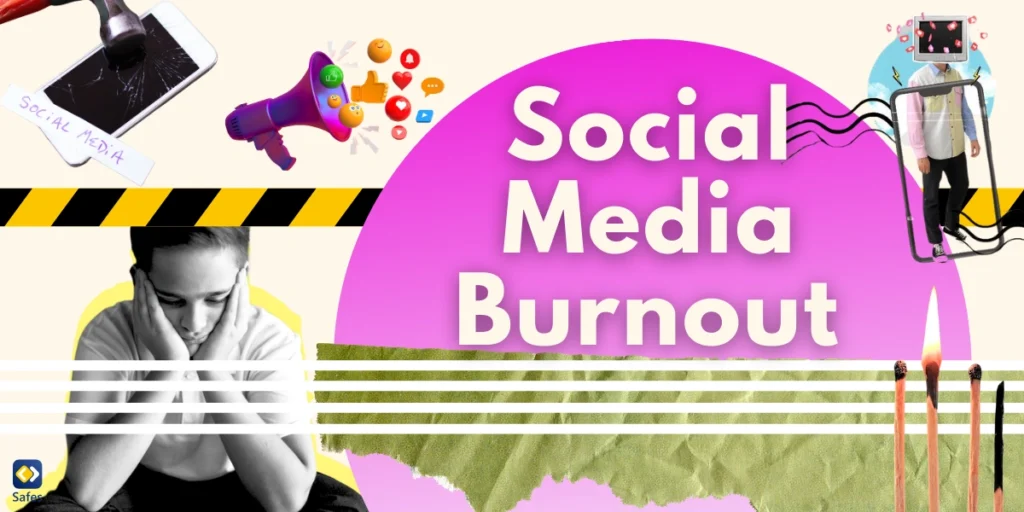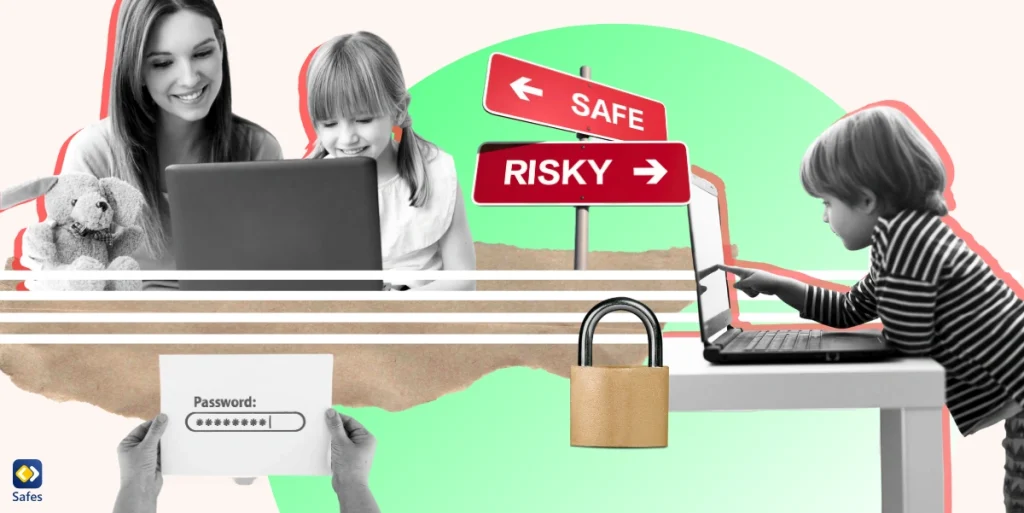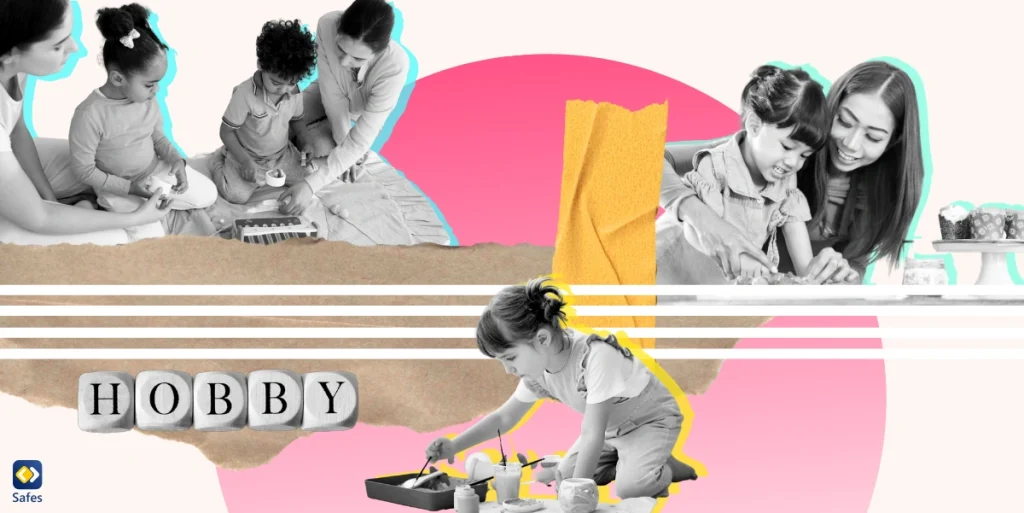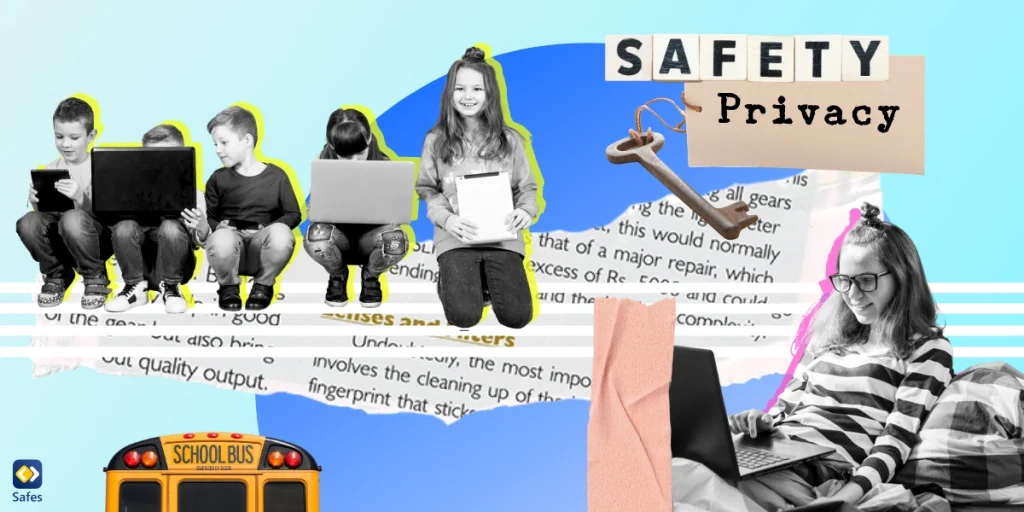Social media burnout isn’t just an adult issue; children are increasingly feeling its effects too. This definition of social media burnout as a state of emotional, mental, and physical exhaustion stems from excessive and prolonged use of social platforms. In a world where screens dominate both work and play, understanding how burnout impacts the entire family is more important than ever.
Download and Start Your Free Trial of the Safes Parental Control App
Parents juggling responsibilities while staying connected online, and children navigating social networks during their formative years, are particularly susceptible. The pressures of maintaining online personas, coupled with real-life obligations, can leave both generations feeling stretched thin. According to a 2023 survey conducted by the American Psychological Association, 41% of teens who used social media the most reported their mental health as poor or very poor, compared to only 23% of teens with minimal social media use.
Spotting the signs of social media burnout early can prevent long-term mental and emotional strain for both you and your child. By being vigilant, families can take steps to ensure everyone’s well-being and foster healthier relationships with technology.
1. Feeling Overwhelmed by Constant Notifications
An avalanche of notifications can make both parents and children feel perpetually on call. The relentless buzzes and beeps demand immediate attention, escalating stress levels across all ages. It’s a digital cacophony that disrupts the peace at home and keeps everyone on edge.
Constant interruptions from devices significantly impact mental well-being. For children, it might mean difficulty concentrating on homework, while parents may struggle to focus on work or family time. Indeed, social media is more harmful than beneficial when it monopolizes attention and increases anxiety for everyone.
Managing notifications is essential for family harmony. Customizing alert settings to reduce unnecessary distractions can help everyone breathe easier. Encourage each family member to turn off non-essential notifications, building an environment where real-life interactions take precedence over digital demands.
2. Decreased Productivity in Daily Tasks
Social media’s impact on attention span affects both kids and adults. Hours slip away as parents and children alike get lost in endless feeds, leading to procrastination. Homework gets delayed, chores pile up, and essential tasks are left undone, creating a cycle of stress and frustration.
This digital distraction, one of the signs of social media burnout, can cause significant disruptions in household responsibilities. Parents might neglect parenting duties or work obligations, while children may fall behind in schoolwork or skip extracurricular activities. The ripple effect impacts the entire family’s routine and well-being.
Balancing online and offline time is key to boosting productivity. Setting clear priorities and establishing time limits for social media use can help both you and your child stay on track. Consider implementing family-wide schedules that allocate specific times for digital engagement and ensure essential tasks are completed first.

3. Neglecting Real-Life Relationships
When screen time overshadows face-to-face interactions, both children and parents miss out on meaningful moments. Family dinners become silent, social outings are ignored, and the warmth of real-life connections fades as everyone retreats into their devices. This disconnect can erode the fabric of family life.
Another symptom of social media burnout, the preference for virtual interaction, creates emotional distance within the family and among peers. Misunderstandings and feelings of neglect can arise when loved ones feel sidelined by a screen. It’s a divide that can strain even the strongest relationships and lead to loneliness.
Rekindling real-life relationships involves intentional effort. Scheduling device-free time allows families to engage with each other genuinely. Encourage activities that bring everyone together, like game nights or outdoor adventures, to strengthen bonds and create lasting memories that no screen can replicate.
4. Comparing Yourself Unfavorably to Others
Social media often showcases only the best moments, making it easy for both parents and children to fall into the comparison game. Seeing others’ seemingly perfect lives can lead to feelings of inadequacy and self-doubt across generations. This constant measuring up can be mentally exhausting.
These constant comparisons negatively impact self-esteem. Children may feel they don’t measure up to their peers, while parents might question their success or parenting skills. This erosion of confidence can affect family dynamics and hinder personal growth and happiness.
Fostering self-compassion involves recognizing that everyone has unique journeys with ups and downs. Encourage open conversations about the realities behind social media posts. Supporting each other in focusing on personal achievements helps build resilience and self-worth within the family.
5. Feeling Anxious or Irritated Without Social Media
Experiencing restlessness or irritability when disconnected from social media is a red flag for social media addiction. Both adults and children may show signs of dependency, feeling uneasy without their devices at hand. This dependency can interfere with daily life and relationships.
Anxiety and mood swings resulting from lack of access can strain family relationships. Tensions rise when either parent or child becomes irritable due to digital withdrawal, leading to conflicts and misunderstandings. It creates an uncomfortable atmosphere at home.
Implementing strategies to reduce reliance on social media benefits the whole family. Gradual digital detox techniques, like designated tech-free hours or days, can ease the dependency. Supporting each other through this process strengthens family bonds and promotes healthier habits.
6. Sleep Disturbances Due to Late-Night Scrolling
Late-night screen use affects sleep patterns for both parents and children. Exposure to blue light interferes with natural sleep cycles, making it harder to fall asleep and achieve restful sleep. This habit can lead to chronic fatigue and impact everyone’s mood and performance.
Sleep deprivation impacts energy levels and mood, affecting school performance for kids and work efficiency for parents. It reduces patience and can make family interactions more challenging due to irritability and exhaustion. A tired family is a stressed family.
Creating screen-free bedtime routines helps the entire family sleep better. Encourage activities like reading or listening to calming music before bed. Setting a household rule for no devices an hour before sleep can significantly improve everyone’s rest and overall well-being.
7. Physical Symptoms Like Eye Strain and Headaches
Excessive screen time can cause eye strain and headaches in both adults and children. Staring at devices for long periods forces the eyes to work harder, leading to discomfort and even migraines. These symptoms can be particularly troubling for growing children.
These physical symptoms can affect school attendance and work productivity. Children might struggle to concentrate in class, while parents may find it challenging to perform their jobs effectively due to persistent discomfort. Ignoring these signs can lead to more serious health issues.
Taking regular breaks is essential for eye health. The 20-20-20 rule—looking at something 20 feet away for 20 seconds every 20 minutes—can help reduce eye strain. Incorporating physical activities into daily routines also provides a necessary break from screens for everyone.
8. Loss of Interest in Offline Activities
When social media dominates free time, both parents and children may neglect hobbies and passions. This leads to missing out on enriching experiences that contribute to personal growth and happiness. Creativity and curiosity can wane, affecting overall life satisfaction.
Losing interest in offline activities can result in a lack of fulfillment and decreased creativity. It may also limit opportunities for family bonding and individual development outside the digital world. Over time, this disengagement can impact mental health.
Encouraging offline engagement as a family helps rekindle interest in various activities. Trying new hobbies together or revisiting old passions can reignite enthusiasm and strengthen family connections. It’s an opportunity to explore, learn, and grow collectively.
9. Feeling Obligated to Post Regularly
Both parents and children may feel an obligation to maintain an active online presence. This self-imposed pressure to post regularly can turn social media from a fun pastime into a stressful chore. The quest for likes and validation becomes overwhelming.
When posting loses its joy, it can lead to burnout and dissatisfaction with social media. This obligation detracts from genuine expression and can negatively impact mental health for both generations. It shifts focus from authentic experiences to manufactured ones.
Encouraging mindful posting habits helps alleviate pressure. Remind each other that it’s okay to take breaks and that online activity should be enjoyable, not obligatory. Focusing on quality over quantity can make social media use more fulfilling and less stressful.
10. Experiencing Emotional Exhaustion
Exposure to negative content or constant engagement can lead to emotional exhaustion in both parents and children. Feeling drained after using social media is a clear sign that it’s time to reassess usage habits. This exhaustion can dampen the family’s overall mood.
Emotional exhaustion can manifest as irritability, sadness, or apathy, impacting family dynamics. It can make it difficult for family members to support each other or engage positively. Recognizing and addressing these feelings is crucial for family harmony.
Practicing digital detox as a family can help restore emotional balance. Allocating regular time away from devices allows everyone to recharge and reconnect with each other in meaningful ways. It’s a step toward healthier relationships both online and offline.

How to Avoid Social Media Burnout
Recognizing these signs is the first step toward healthier digital habits for both you and your child. Here are practical steps to prevent burnout and foster a balanced relationship with social media:
- Set Clear Boundaries: Define specific times for social media use to prevent it from overtaking daily life.
- Prioritize Real-Life Interactions: Engage more with family and friends offline to strengthen relationships.
- Curate Your Feeds Together: Follow accounts that inspire and unfollow those that cause stress or negativity.
- Limit Notifications: Turn off non-essential alerts to reduce distractions for everyone.
- Engage in Mindfulness Practices: Incorporate techniques like meditation to help stay present and reduce anxiety.
- Establish Tech-Free Zones and Times: Create areas or periods where devices are not allowed, such as during meals or family activities.
- Seek Alternative Activities: Invest time in hobbies, exercise, or learning something new together to enrich family life beyond screens.
Safes: Your Partner in Digital Well-being
Parental control apps play a significant role in managing screen time and promoting healthy online habits for both parents and children. Our app, Safes, is designed to help families navigate the digital world together, ensuring everyone’s online experience is positive and secure.
Safes offers features that support setting appropriate boundaries for device usage across the household. By trying our free trial, available on both iOS and Android, you can take the first step toward a balanced digital lifestyle for your entire family. It’s an investment in your family’s well-being.
Conclusion: Tackling Burnout as a Family
Awareness of social media burnout’s signs is crucial for both parents and children. By identifying these symptoms together, families can take proactive steps to improve everyone’s well-being. Open communication is key to addressing and overcoming these challenges.
Finding equilibrium between online engagement and real-life connections ensures that you prioritize what’s truly important. Embracing shared experiences strengthens family bonds and enhances overall happiness. It’s about making memories that last a lifetime.
Developing a healthier relationship with social media benefits the entire family. By supporting each other in setting boundaries and practicing mindful usage, you pave the way for a more fulfilling and connected life for everyone. Together, you can navigate the digital world with confidence and joy.
Your Child’s Online Safety Starts Here
Every parent today needs a solution to manage screen time and keep their child safe online.
Without the right tools, digital risks and excessive screen time can impact children's well-being. Safes helps parents set healthy boundaries, monitor activity, and protect kids from online dangers—all with an easy-to-use app.
Take control of your child’s digital world. Learn more about Safes or download the app to start your free trial today!




